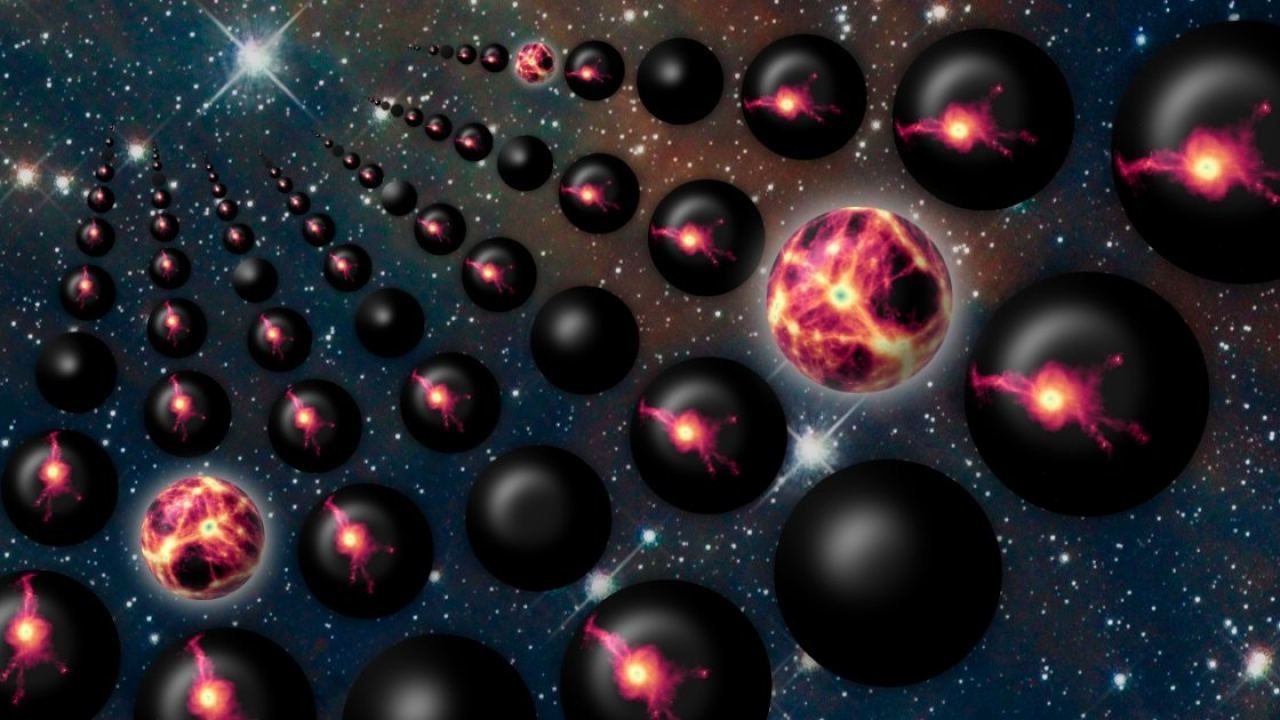
Is the multiverse real? This question has puzzled scientists and dreamers alike. Imagine countless universes existing alongside our own, each with its own unique laws of physics, histories, and possibilities. Multiverse theory suggests that our universe might be just one of many, like a single bubble in a vast cosmic foam. Some theories propose parallel worlds where every decision you've ever made plays out differently. Others hint at universes with entirely different physical constants. From quantum mechanics to string theory, the multiverse concept spans various scientific fields. Understanding the multiverse could change how we see our place in the cosmos, sparking curiosity and debate. Ready to dive into 26 intriguing facts about this mind-bending theory? Let's get started!
What is the Multiverse Theory?
The multiverse theory suggests that our universe is just one of many. These multiple universes together make up what is known as the multiverse. This idea has fascinated scientists, philosophers, and even writers for years.
- The term "multiverse" was coined by philosopher William James in 1895.
- The multiverse theory is a part of the broader concept of parallel universes.
- Some scientists believe there could be an infinite number of universes.
- Each universe in the multiverse could have different physical laws.
- The idea of the multiverse is often explored in science fiction.
Different Types of Multiverses
There are several types of multiverses, each with its own unique characteristics. These types help scientists categorize and understand the different possibilities.
- The Bubble Universe theory suggests that our universe is one of many bubbles.
- The Membrane (or Brane) Theory proposes that our universe exists on a membrane floating in higher-dimensional space.
- The Quantum Multiverse arises from the many-worlds interpretation of quantum mechanics.
- The Mathematical Universe Hypothesis suggests that all possible mathematical structures exist as their own universes.
- The Daughter Universe theory involves universes branching off from each other.
Scientific Support and Criticism
While the multiverse theory is intriguing, it has both supporters and critics within the scientific community. Understanding these perspectives can provide a balanced view.
- Some physicists support the multiverse theory because it could explain certain aspects of quantum mechanics.
- Critics argue that the multiverse theory is not testable and therefore not scientific.
- The cosmic inflation theory supports the idea of multiple universes.
- String theory also suggests the possibility of a multiverse.
- Some scientists believe that the multiverse theory could solve the fine-tuning problem of our universe.
Multiverse in Popular Culture
The multiverse theory has captured the imagination of many and has been featured in various forms of popular culture. This has helped bring the concept to a broader audience.
- The multiverse is a common theme in comic books, especially in the Marvel and DC universes.
- Movies like "Doctor Strange" and "Spider-Man: Into the Spider-Verse" explore multiverse concepts.
- TV shows like "Rick and Morty" and "Stranger Things" also delve into multiverse ideas.
- The concept of the multiverse is often used to explain alternate realities in video games.
- Books like "His Dark Materials" by Philip Pullman explore parallel universes.
Philosophical Implications
The idea of a multiverse has significant philosophical implications. It challenges our understanding of reality and our place in it.
- The multiverse theory raises questions about the nature of reality.
- It challenges the idea that our universe is unique.
- Some philosophers argue that the multiverse theory could explain the existence of evil.
- The concept of the multiverse can lead to discussions about free will and determinism.
- The idea of multiple universes can also impact religious and spiritual beliefs.
Future Research and Possibilities
The multiverse theory is still a developing field. Future research could provide more insights or even evidence supporting or refuting the theory.
- Advances in technology could help scientists find evidence of other universes.
The Multiverse: A Mind-Bending Concept
Multiverse theory isn't just a sci-fi fantasy. It's a serious scientific idea that challenges our understanding of reality. From parallel universes to alternate dimensions, the multiverse could explain some of the biggest mysteries in physics. Imagine a universe where dinosaurs never went extinct or one where humans have superpowers. These possibilities make the multiverse a fascinating topic.
Scientists are still debating its existence, but the idea alone pushes the boundaries of what we know. Whether it's through string theory, quantum mechanics, or cosmology, the multiverse opens up endless questions and possibilities. It's a reminder that our universe might be just one of many, each with its own unique laws and realities.
So, next time you look up at the stars, remember—you might be staring into just one tiny part of an infinite multiverse.
Was this page helpful?
Our commitment to delivering trustworthy and engaging content is at the heart of what we do. Each fact on our site is contributed by real users like you, bringing a wealth of diverse insights and information. To ensure the highest standards of accuracy and reliability, our dedicated editors meticulously review each submission. This process guarantees that the facts we share are not only fascinating but also credible. Trust in our commitment to quality and authenticity as you explore and learn with us.
